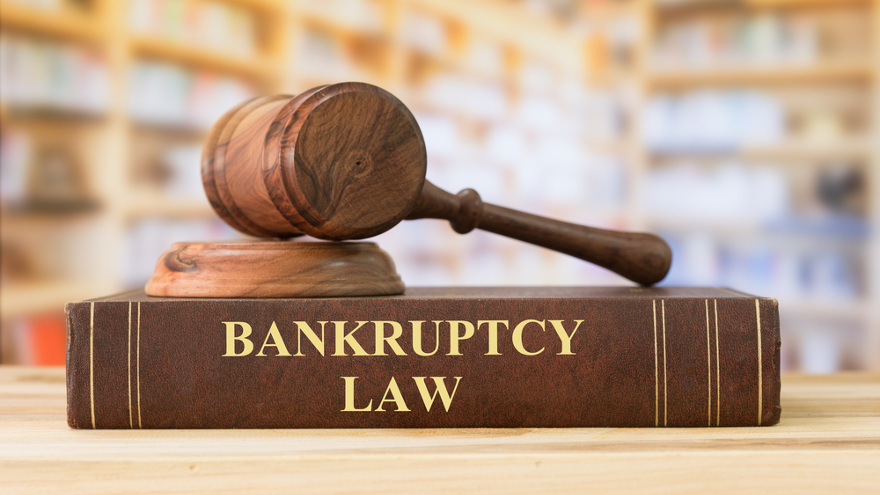Bankruptcy filings & consumer worries about finances keep rising

By subscribing, you agree to receive communications from Auto Remarketing and our partners in accordance with our Privacy Policy. We may share your information with select partners and sponsors who may contact you about their products and services. You may unsubscribe at any time.
While a pair of bankruptcy experts chose to focus on the commercial side of the segment after looking at March filings, overall and individual filings rose again last month, potentially reinforcing what a Prosper Marketplace consumer survey highlighted.
According to data provided by Epiq AACER on Thursday, total bankruptcy filings came in at 50,189 in March, a 13% year-over-year increase.
Epiq AACER reported individual bankruptcy filings also increased 13% year-over-year in March, with those consumer filings rising from 41,994 to 47,462.
The new data showed there were 30,671 individual Chapter 7 filings in March, an 18% jump year-over-year, while Chapter 13 filings rose 6% year-over-year last month to 16,713.
Landing a day before the March bankruptcy data, Prosper Marketplace, a peer-to-peer lending platform, announced results of its Economic Perceptions & Personal Finance study, which indicate a significant decline in financial confidence among consumers.
The survey found 46% of consumers feel their income has not kept up with inflation, and only 31% believe their personal finances are better than they were before the COVID-19 pandemic.
Subscribe to Auto Remarketing to stay informed and stay ahead.
By subscribing, you agree to receive communications from Auto Remarketing and our partners in accordance with our Privacy Policy. We may share your information with select partners and sponsors who may contact you about their products and services. You may unsubscribe at any time.
“The results of our latest survey indicate that consumers are less confident about their finances than they were eight years ago, and less than half believe conditions will improve within the next five years,” Prosper Marketplace CEO David Kimball said in a news release.
Results from the 2024 Prosper study — the follow-up to a study in 2016 — indicated:
—Economic perceptions: 45% of Americans feel the economy had worsened since the pandemic, but 48% thought things would improve in the next five years. Men were more optimistic (55%) than women (41%).
—Investment gaps: Most Americans aren’t investing, as 68% of respondents said they had no investments, and women were disproportionately affected — nearly 8 in 10 reported not investing.
—Debt troubles: Credit card debt rose fast. In 2024, 63% of users said they aren’t able pay off their balances in full, up sharply from 45% in 2016.
—Living paycheck to paycheck: More people feel stretched. By the end of 2024, 57% said they lived paycheck to paycheck, compared to 48% in 2016.
—Low financial confidence: Only 42% of respondents feel confident they could handle a financial emergency, leaving many vulnerable to unexpected costs.
With many consumers struggling financially, it’s evidently spilling into the business world as the latest bankruptcy data showed.
Epiq AACER reported commercial Chapter 11 bankruptcy filings increased 20% in March, with filings climbing to 733 from the 611 filings registered last March,
Analysts noted that total March commercial filings increased 10% to 2,727 from the 2,477 commercial filings the previous year.
“The 20 percent rise in commercial Chapter 11 filings to 733 in March 2025, up from 611 last year, signals persistent economic pressure, mirrored by a 10 percent increase in total commercial filings to 2,727,” Epiq AACER vice president Michael Hunter said in another news release. “Meanwhile, credit card delinquencies have hit a near 10-year high, driven by rising interest rates and consumer debt burdens.
“In the FHA mortgage portfolio, we’re seeing elevated recidivism, with delinquency rates climbing to 11 percent, surpassing pre-pandemic levels as borrowers exiting forbearance face renewed strain,” Hunter continued. “Adding to this, government job layoffs threaten to exacerbate financial instability for federal workers reliant on stable income to service debts.
In the news release, American Bankruptcy Institute Amy Quackenboss executive director, “While overall bankruptcy filings increased in the past year, subchapter V elections by small businesses declined and the pace of consumer chapter 13 filing increases slowed.
“As both filing categories saw expanded debt eligibility limits expire last year, we look forward to working with Congress to re-establish higher debt thresholds to provide struggling small businesses and families greater access to the financial fresh start of bankruptcy,” Quackenboss said..
Looking at the data on a quarterly comparison, Epiq AACER reported there were 131,998 total bankruptcy filings registered during the first quarter, representing a 10% rise year-over-year.
Analysts pointed out individual Chapter 7 filings during the first quarter came in at 76,501, a 14% increase from Q1 of last year. Individual Chapter 13 filings during the first quarter totaled 47,928, a 4% uptick.
ABI has partnered with Epiq Bankruptcy to provide the most current bankruptcy filing data for analysts, researchers, and members of the news media.


